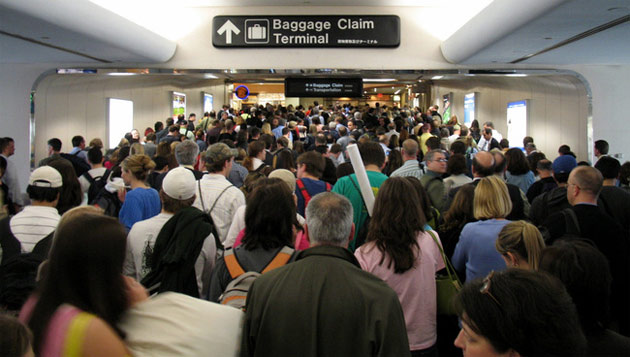 A great article by Jonah Lehrer on how travel expands our minds (and why we go through the hell of getting there) can be found at "Why We Travel" at scienceblogs.com
A great article by Jonah Lehrer on how travel expands our minds (and why we go through the hell of getting there) can be found at "Why We Travel" at scienceblogs.coman excerpt:
...and in summary:...When we escape from the place we spend most of our time, the mind is suddenly made aware of all those errant ideas we'd previously suppressed. We start thinking about obscure possibilities--corn can fuel cars!--that never would have occurred to us if we'd stayed back on the farm. Furthermore, this more relaxed sort of cognition comes with practical advantages, especially when we're trying to solve difficult problems. Look, for instance, at a recent experiment led by the psychologist Lile Jia at Indiana University. He randomly divided a few dozen under-grads into two groups, both of which were asked to list as many different modes of transportation as possible. (This is known as a creative generation task.) One group of students was told that the task was developed by Indiana University students study-ing abroad in Greece (the distant condition), while the other group was told that the task was developed by Indiana students studying in Indiana (the near condition). At first glance, it's hard to believe that such a slight and seemingly irrelevant difference would alter the performance of the subjects. Why would it matter where the task was conceived?
Nevertheless, Jia found a striking difference between the two groups: when students were told that the task was imported from Greece, they came up with significantly more transportation possibilities. They didn't just list buses, trains, and planes; they cited horses, triremes, spaceships, bicycles, and even Segway scooters. Because the source of the problem was far away, the subjects felt less constrained by their local transport options; they didn't just think about getting around in Indiana, they thought about get-ting around all over the world, and even in deep space.
So let's not pretend that travel is always fun, or that we endure the jet lag for pleasure. We don't spend ten hours lost in the Louvre because we like it, and the view from the top of Machu Picchu probably doesn't make up for the hassle of lost luggage. (More often than not, I need a vacation after my vacation.) We travel because we need to, because distance and difference are the secret tonic of creativity. When we get home, home is still the same. But something in our mind has been changed, and that changes everything.Original article "Why We Travel" by Jonah Lehrer can be found here: http://scienceblogs.com/cortex/2009/12/why_we_travel.php
Thanks to Dieter L for the link!







No comments:
Post a Comment